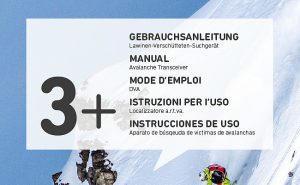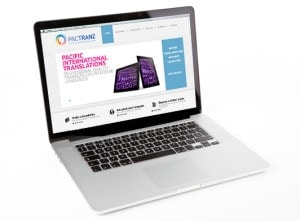Websites are critical to modern business operations and provide a major means of marketing and engagement with a global audience. With such a diverse audience in mind it is imperative your website content is translated to a high standard.
It’s more than simply correct wording. We need to ensure nothing in the content itself, or its presentation, is inappropriate or off-putting to target culture viewers. On top of that we need to work hard to ensure the translated texts will actively engage and appeal to your target markets.
Our website translators can meet these requirements in over 80 translation languages.
What you need to know our website translation services
We suggest clients choose our quality-assured translation process to translate website texts.
This is our highest level of quality, designed not only to ensure 100% translation accuracy, but also produce foreign language text that will have the impact and appeal you want with your target audience. These translations undergo a robust quality assurance process.
Web pages often include content that needs to be translated by specialist translators with additional knowledge and skillsets.
For example:
- technical text may require expertise in the specific technical field. Typical examples would be certain product descriptions, engineering texts, medical descriptions.
- legal texts, such as terms of trade and end user license agreements (EULAs), generally require a translator with a legal background.
- marketing text that is carefully crafted with subtle nuances of meaning. Directly translating this material will seldom generate the same impact, so a freer approach and marketing/copy writing focus is needed. Relatively few translators are skilled at this.
The breadth and experience of our translator personnel will ensure these types of text are always translated appropriately.
We have specialist technical and our legal translators, and know precisely which of our translators are best suited to marketing and promotional style text.
If your website has pdfs of brochures or videos, we can help with those as well. We offer a full multilingual typesetting service in all our working languages, as well as foreign language voice-overs in several languages.
We are used to working closely with webmasters to ensure translations are provided in the precise formats required.
We will also often carry out a full site review of the foreign language content before going live.
Summary: Key features of our website translation service
- over 80 languages translated
- our quality-assured translation process produces accurate, optimally-worded text
- specialist translators will handle technical, legal and marketing content
- files provided in any format
- we work closely with webmasters and web designers
- final review before going live if required
To obtain a quote for your website translation project:
- Call us to discuss on 0508 872 675 or (09) 913 5290.
- Or e-mail us your existing site url, which pages you need translated, and the languages.
After looking at your site we may need to clarify a few points with you, and will then provide a quote by e-mail.
Website translation vs website localization - what’s the difference?
These terms can be confusing. Often they are used almost interchangeably, but there is a difference.
Translation is the conversion of text into another language. So the focus is solely on language.
Localization goes further to identify and adapt content that might be unsuitable or lack target culture relevance. The aim is to ensure the foreign language or multi-language website is as natural and effective as it can be for the target readers.
Website localisation explained
Localisation is concerned with more than just creating a quality translation. It is also about ensuring the content, message and visuals of the foreign language site are appropriate, natural and positive for the foreign language visitor.
Viewers react best when all aspects of a site are consistent with their own culture. Conversely they will react less positively to content they perceive as unnatural or in any way inappropriate.
Here are some typical areas where localisation can be beneficial:
- references to New Zealand/Australian locations, events or customs that will likely be lost on unfamiliar audiences
- the casual, informal tone widely used on English websites can seem frivolous and insincere in other languages. A more formal style may have greater acceptance
- a strong sales pitch, common on many B2C sites, can appear aggressive and disrespectful in other cultures
- the people and locations in photos may not resonate with foreign language visitors
Clients’ needs and objectives for their foreign language or multi-language website projects vary considerably.
Thus so too does our involvement. This can range from a simple translation process through to a much more proactive role in ensuring content is optimized for the target culture.
We offer the following services:
- Review of content for relevance/appropriateness in the target culture(s)
- Review of the effectiveness of visual/aesthetic elements for the target culture(s)
- Translation of site content
- Re-writing or transcreation of less relevant/effective content
- Final review of site before going live
The sorts of things localization looks at
- Regional formats for dates, times, numbers, weights, measures, etc – these are generally addressed in the translation process.
- geographic and culture-specific references
- the writing style/tone
- the marketing message
- use of graphics, images and colour
- layout and font usage and font sizes
These factors can have a significant impact on the target visitor, and thus the effectiveness of the foreign language site.
Don't need a quote for a website translation right now?
Then visit our PacTranz blog – our articles get 8,000 views a month, and our YouTube channel 2,500 views. It's your source of informative, practical information to help you better manage your translation needs. Like this:


